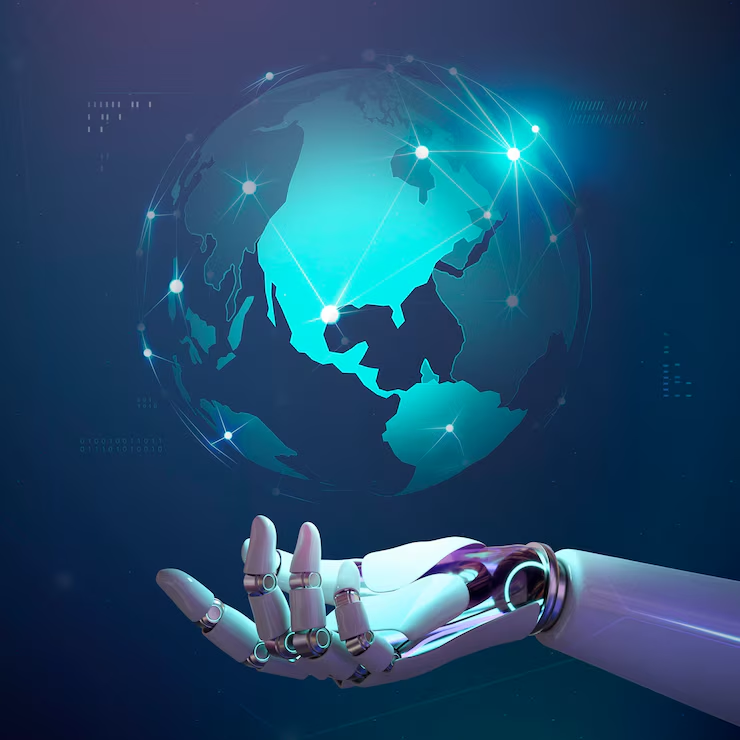In today’s digital revolution, motiontechno symbolizes the fast-paced shift brought about by modern technologies—especially Artificial Intelligence (AI). The concept of AI isn’t just a buzzword anymore; it’s the engine driving change in every corner of our lives. From automation to innovation, AI is establishing itself as the foundation of the future world, influencing everything from business decisions to everyday experiences.
What is Artificial Intelligence?
Artificial Intelligence (AI) is the simulation of human intelligence in machines that are programmed to think, learn, and solve problems like humans. It includes various technologies such as machine learning, natural language processing, robotics, and computer vision. AI systems can analyze massive amounts of data, recognize patterns, make decisions, and even improve themselves over time.
Why AI is Called the “Foundation” of the Future
AI is not just a tool; it is becoming the very framework upon which future innovations will be built. Here’s why:
- 🌍 Global Transformation: AI is revolutionizing healthcare, finance, education, transportation, and entertainment.
- ⚙️ Automation: Repetitive tasks are being automated, increasing efficiency and reducing costs.
- 🧠 Smarter Decision-Making: AI analyzes large datasets and delivers insights humans might miss.
- 🚀 Innovation Boost: AI is enabling new inventions like self-driving cars, intelligent virtual assistants, and smart homes.
Applications of AI in Real Life
1. Healthcare
AI is transforming diagnosis and treatment through medical imaging, predictive analytics, and drug discovery. Chatbots are helping patients access health advice instantly.
2. Education
AI-powered tools offer personalized learning experiences, automatic grading, and real-time feedback, making education more accessible.
3. Business
Companies use AI for customer service (chatbots), sales forecasting, fraud detection, and supply chain optimization.
4. Transportation
AI fuels autonomous vehicles, traffic management systems, and smart navigation for a smoother, safer commute.
5. Home & Lifestyle
From AI-powered personal assistants like Alexa and Siri to smart refrigerators and lighting systems, AI is simplifying modern living.
The Role of AI in Economic Growth
AI has the potential to add trillions of dollars to the global economy. By improving productivity and enabling innovation, businesses can scale faster and serve customers better. Small startups and big corporations alike benefit from data-driven strategies and AI-powered insights.
AI and the Job Market
While there’s concern about job losses due to automation, AI is also creating new opportunities:
- New jobs in data science, machine learning, and robotics.
- Roles focused on ethical AI and regulatory compliance.
- A growing need for AI trainers, maintainers, and user experience designers.
Upskilling and digital literacy will be key to thriving in the AI-driven economy.
Challenges and Risks of Artificial Intelligence
Despite its benefits, AI comes with potential downsides:
- 🤖 Job Displacement: Automation may lead to unemployment in some sectors.
- 🔐 Privacy Concerns: AI systems collect and analyze user data, raising ethical issues.
- ⚖️ Bias and Fairness: If AI is trained on biased data, it can produce discriminatory outcomes.
- 🛡️ Security Threats: AI can be exploited for cyberattacks, misinformation, or surveillance.
Governments, organizations, and researchers must collaborate to ensure AI is used responsibly and ethically.
The Future of AI: What Lies Ahead?
AI is moving toward General AI—systems that can understand and perform any intellectual task that a human can. Here’s what the future may hold:
- 🧬 AI in Genetics: Revolutionizing personalized medicine and disease prevention.
- 🌌 AI in Space: Assisting in space exploration and satellite data analysis.
- 🧠 Brain-AI Interfaces: Connecting human brains directly with machines.
- 🌱 AI and Sustainability: Optimizing resources and supporting environmental protection.
The fusion of AI with other emerging technologies like quantum computing, 5G, and the Internet of Things (IoT) will only accelerate its impact.
How to Prepare for the AI Future?
To adapt and thrive in an AI-powered world:
- 💡 Embrace Lifelong Learning: Learn coding, data analysis, and digital literacy.
- 🔍 Stay Informed: Follow tech trends and understand how AI affects your field.
- 🧩 Collaborate with AI: Use AI tools to enhance your productivity and creativity.
- 📜 Advocate for Ethics: Support fair, transparent, and responsible use of AI.
FAQs
Q1: What are the main types of AI?
A: The main types are:
- Narrow AI (task-specific)
- General AI (human-like intelligence)
- Super AI (hypothetical, surpasses human intelligence)
Q2: Can AI replace humans?
A: AI can automate certain tasks but lacks emotions, ethics, and human consciousness. It complements rather than completely replaces human roles.
Q3: How is AI used in daily life?
A: AI is present in smartphones, voice assistants, online shopping recommendations, traffic maps, and even spam filters in emails.
Q4: Is AI dangerous?
A: AI can pose risks if not regulated properly. Ethical development, transparent algorithms, and human oversight are crucial to prevent misuse.
Q5: Will AI take away jobs?
A: Some jobs will be automated, but new roles will also emerge. Upskilling and adapting to new technologies is the key to staying relevant
Conclusion
Artificial Intelligence is not just another technological trend—it is the cornerstone of the future world. As we move forward, AI will influence every aspect of our lives, from how we work and learn to how we interact and evolve. Whether you’re a student, entrepreneur, or professional, understanding and embracing AI is essential. The future is being written by algorithms today—make sure you’re part of that story.
If “motiontechno” signifies motion plus technology, then AI is the pulse behind it. Let’s embrace it responsibly and innovatively.


